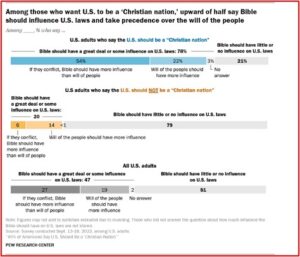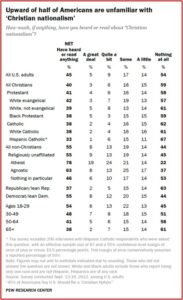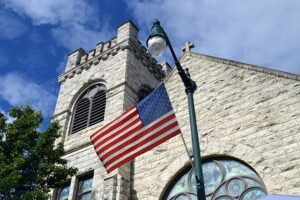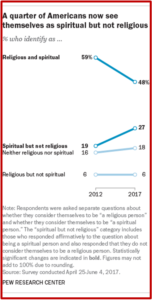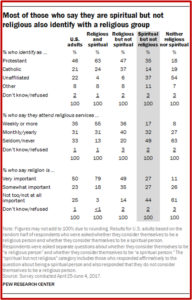Corruption Caused by Indwelling Sin

Image by Klaus Hausmann from Pixabay
In chapter fifteen of Indwelling Sin, John Owen said he would now consider the many ways indwelling sin habitually corrodes grace and holiness in believers. At first, believers have many fresh springs and refreshing showers coming upon them, filling them up with a high rate of faith, love holiness, fruitfulness, and obedience. As it is with a flood, when these many streams run into a river, the river swells over its bounds, “and rolls on with more than ordinary fullness.” But if these springs are not kept open, if they don’t continue with an abundance of these showers, “they must needs decay and go backwards.”
One of these springs is a fresh, vigorous sense of pardoning mercy. Accordingly, when this is in a person’s soul, it results in the love and delight of God and leads to obedience to His will. “As, I say, is the sense of gospel-pardon, so will be the life of gospel-love.” Consider the sinful woman described in Luke 7:36 and following.
When a Pharisee had asked Jesus to eat with him, a woman who was known to be a sinner came and kissed his feet and anointed them with ointment. The Pharisee thought to himself, if Jesus were a true prophet, he would know what sort of woman is touching him, for she is a sinner. Knowing his thoughts, Jesus told him a parable about a moneylender and two debtors and asked which debtor loved him more. The Pharisee judged it was the one for whom the money lender cancelled the larger debt. Jesus confirmed he had judged rightly and then said to Simon:
Do you see this woman? I entered your house; you gave me no water for my feet, but she has wet my feet with her tears and wiped them with her hair. You gave me no kiss, but from the time I came in she has not ceased to kiss my feet. You did not anoint my head with oil, but she has anointed my feet with ointment. Therefore I tell you, her sins, which are many, are forgiven—for she loved much. But he who is forgiven little, loves little. (Luke 7:44-47)
So, when sinners are first converted, they are very sensible to their great forgiveness. Their recognition of the greatness of their sin greatly subdues their hearts and spirits to God, “and quickens them to all obedience.” Even cursed sinners as they were could be delivered and pardoned. “The love of God and of Christ, in their forgiveness, highly conquers and constrains them to make it their business to live to God.”
A second spring is the fresh taste they have of spiritual things that has such a savor and relish in their souls, that worldly pleasures are rendered sapless and undesirable. After tasting the wine of the gospel, they desire no other. When souls are first translated into the light of Christ, they see a new glory that defiled the desirableness of all earthly diversions. “They see a new guilt and filth in sin, that gives them an utter abhorrency of its old delights and pleasures.”
It’s as if a man that was kept a long time in a dungeon was brought forth suddenly into the sun light. He’d find so much pleasure and contentment in the beauties of the creation that he’d think he could never weary of it. Nor would he ever be content to be under darkness—for any reason—ever again. So it is with people when they are first translated into the marvelous light of Christ to behold the beauty of the new creation. “They see a new glory in him, that hath quite sullied the desirableness of all earthly diversions. And they see a new guilt and filth in sin, that gives them an utter abhorrency of its old delights and pleasures.”
The first way, then, that indwelling sin prepares individuals for decays and corruption in grace and obedience is it strives to stop or taint these springs by sloth or negligence. It prevails on the soul to forget or neglect thinking about the things that so powerfully influenced it to strict and fruitful obedience. If care is not taken, if the person is not diligent and watchful of the means appointed by God to maintain a living sense of them upon them, “they will dry up and decay.” And the obedience that should spring from them will as well.
Let the heart ever so little disuse itself to gracious, soul-affecting thoughts of the love of God, the cross of Christ, the greatness and excellency of gospel-mercy, the beauties of holiness; they will quickly be as much estranged to a man, as he can be to them.
Another way that indwelling sin works to taint these springs is to encourage formal, weary, powerless thoughts of those things which it should overcome in diligence thankful obedience. God said through Moses to Aaron he will be sanctified in all those who are near him (Leviticus 10:3). So are we to deal with the things of God whereby we have communion with him. When we begin to entertain them with slight and common thoughts, not using and improving them to the utmost, they lose all their beauty, and glory, and power towards them.
When we have anything to do, wherein faith, or love towards God is to be exercised, we must do it with all our hearts, with all our minds, strength, and souls, not slightly and carelessly, which God abhors; he does not only require that we bear his love and grace in remembrance, but that, as much as in us lies, we do it according to the worth and excellency of them.
So, when we consider gospel truths, we should strive to be changed into the same image or likeness (2 Corinthians 3:18). Otherwise, it will be like James tells us: “He is like a man who looks intently at his natural face in a mirror. For he looks at himself and goes away and at once forgets what he was like” (James 1:23-24). It makes no impression upon him because he does it only slightly. They talk of religion and spiritual things as much as they ever did in their lives, and perform duties with as much steadfastness as they ever did.
But yet have poor, lean, starving souls, as to any real and effectual communion with God. By the power and subtlety of indwelling sin, they have grown formal, and learned to deal about spiritual things in a careless manner, whereby they have lost all their life, vigour, savour, and efficacy towards them. Be always serious in spiritual things, if ever you intend to be bettered by them.
Indwelling sin will often stop these springs of gospel obedience by false and foolish opinions, corrupting the simplicity of the gospel. “False opinions are the works of the flesh.” They mostly come from the vanity and darkness of the minds of men with a mixture of corrupt affections. Owen said they have seen some who after they had received “a sweet taste of the love of God in Christ,” and walked with him for many years, despised all their own experiences and rejected the efficacy of truth. “We have innumerable instances hereof in the days wherin we live.”
Owen goes on in the chapter to describe how Satan is a diligent, watchful, and crafty adversary. “He will neglect no opportunity, no advantage that is offered to him.” Wherever our spiritual strength is impaired by sin, or however our lusts pressure, Satan falls in with that weakness, and presses towards that ruin.” He gives his readers a few cautions to keep them from this corruption.
First, there are a great number of hypocrites in the body of believers. For others, you don’t know what the present temptations they struggle against. There may be some secret lust in their heart that the soul contends against faintly. But it does not make thorough work, vigorously mortifying it by the strength and power of grace.
But where indwelling sin has provoked, irritated, and given strength to a special lust, it proves assuredly a principal means of a general declension. For as an infirmity and weakness in any one vital part, will make the whole body consumptive, so will the weakness in anyone grace, which a perplexing lust brings with it, make the soul. It every way weakens spiritual strength.
Yet there is hope. Owen said a great sin will certainly give a great turn to the life of a believer. If it is cured in the blood of Christ, with the humiliation that the gospel requires, “it often proves a means of more watchfulness, fruitfulness, humility, and contention, than ever the soul before obtained.” If neglected, it certainly hardens the heart and weakens spiritual strength, enfeebles the soul, and discourages all communion with God. But if like a broken bone which is well set, it leaves the person stronger than before. If otherwise, it makes the person a cripple all their days.
These are the corruptions caused by indwelling sin.




